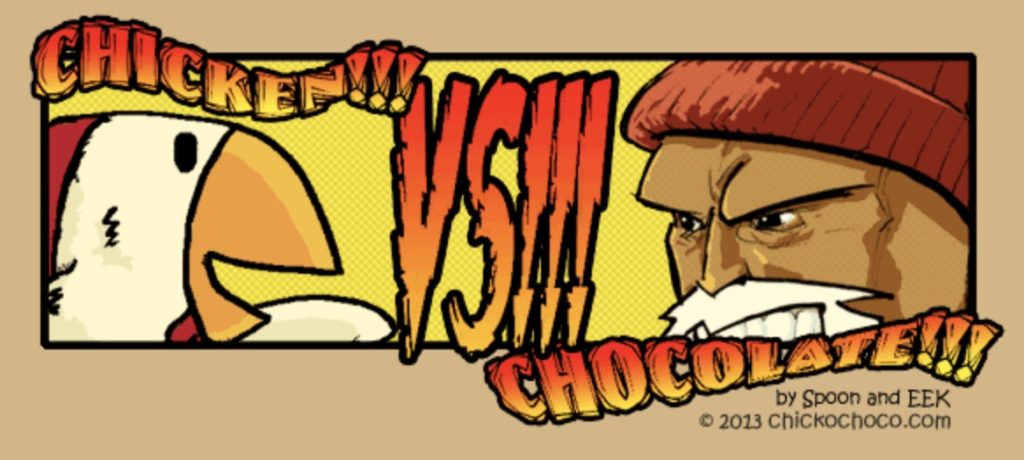Data that answers important questions such as ‘where does my surname rank on the Chinese leaderboard?’ (12th) and ‘are people named “tall†actually concentrated in the northern part of the country?’. (Pshht, tiny Asians.)
iOS 7 recreated in Microsoft Word
If you’ve ever tried any kind of vector-based design, watch this dude draw iOS 7 in freakin’ Microsoft Word. I didn’t mean to watch to the end, but I ended up staring at the screen for 10 minutes in slack-jawed amazement.
Also, this comment:
This guy is making iPhones in Word and I’m just sitting here trying to center my title…
Neil Gaiman on libraries, reading and daydreaming
Also, do not do what this author did when his 11-year-old daughter was into RL Stine, which is to go and get a copy of Stephen King’s Carrie, saying if you liked those you’ll love this! Holly read nothing but safe stories of settlers on prairies for the rest of her teenage years, and still glares at me when Stephen King’s name is mentioned.
(There were many more important, but less hilarious, bits than this quote.)
Coding the Curriculum: How High Schools Are Reprogramming Their Classes
A look at how one high school is introducing programming into all its classes, even unrelated subjects. Some of these are eyebrow-raise-worthy at first glance:
Brown says she’s considering a poetry unit using code language. […] Tina Farrell, who heads the Performing Arts department, is interested in experimenting with live-coding performances, where students would use software to compose and perform music with scripts they write.
But just _imagine_ if these worked.
Also, new to me, linked from the article: [TurtleBits](http://turtlebits.net/), an interactive turtle learning tool. Still one of my favourite intro programming resources.
Fitbit + Cat
Putting an activity tracker on a cat yields insights:
You’ll notice that somebody was taking a nap from 11am-3pm while we were out of the house. Proof that yes, the cat has not even moved from that spot since we left.
I knew it
tigerairy
We took Tiger Airways up to Bangkok on Monday, and flew back by “tigerair” on Thursday. I quite like the playfulness of the new logo–look at that little wink the i’s are doing!–but I keep trying to pronounce the name as written.
Chickochoco, my new comic
After a brief* hiatus from making webcomics, I’m back with old friend and long-time collaborator EEK to try doing a new comic. It’s called Chicken vs. Chocolate or Chickochoco for short, and it stars our trusty old stupid Chicken and a brand new grumpy-as-hell character.

This time, we’ve actually planned ahead and gotten at least three months’ worth of scripts ready, as opposed to how I used to wing it the night before my self-imposed posting deadline. Also, EEK will be handling most of the art while I sit around and pencil in Chicken, which is a pretty sweet deal for me. I hope he doesn’t read this.
Anyway, please follow us on Twitter and Like us on Facebook! If you already did, please tell your friends, and stay tuned for all manners of madcap adventures.
* Nearly 3 years, to this day: the last stupidchicken comic was posted on 19 April, 2010.
What most schools don’t teach
This video by [code.org](http://code.org) on promoting programming in schools made its way around the Internet last week, but I never get around to watching videos until the weekend. Anyway, I’ve since watched all three versions, and none of them are _that_ inspiring, but the 5-minute one is the best, and I’ll probably show it to my students (after I destroy them with this week’s difficult programming test, giggle).
The most annoying teacher in the world
is MEEEEEEE

More Singapore tech blog writing
From a recent e27 article, [Google launches products to encourage entrepreneurship in the emerging markets](http://e27.sg/2012/12/06/google-launches-products-to-encourage-entrepreneurship-in-the-emerging-markets/):
> Relying on citizen cartographers, Google Map Maker started in India as a way to make better maps of the subcontinent. It is a form of crowdsourcing that has emerged that demonstrates an effective way of getting local content online. Today, the product has doubled the worlds digital maps corpus, mapping 1.5 billion people in 187 countries. The UN and aid agencies have used these user generated maps to assist and rescue millions.
I found the last two sentences of this paragraph notable because (a) they were much less clumsily written than the rest of the article, and (b) “corpus”?! Who the hell actually uses that word? So, as a former teacher who’s marked his fair share of suspicious-looking student reports, I googled.
From [Global Innovation Roundtable’s bio of Lalitesh Katragadda](http://globalinnovationroundtable.gov.in/speakers/lalitesh-katragadda.html):
> His most recent creation, Google Map Maker, doubled the worlds digital maps corpus, mapping 1.5 billion people in 187 countries. The UN and aid agencies have used these user generated maps to assist and rescue millions.
Even the missing apostrophe made it over. Lesson: Don’t plagiarise in a world with Google. Especially not in an article about Google.
(The first sentence in the quote is also copied, but a little better—at least there, the author makes an effort to paraphrase parts of para 3 in [Google’s blog entry](http://googleindia.blogspot.tw/2012/12/the-next-billion-internet-users.html).)
See also [the last time I wrote about Singapore tech blogs](http://yjsoon.com/2012/07/the-state-of-tech-blog-writing-in-singapore).
